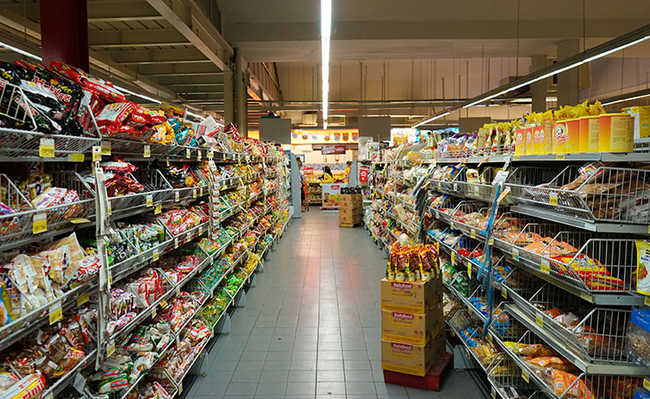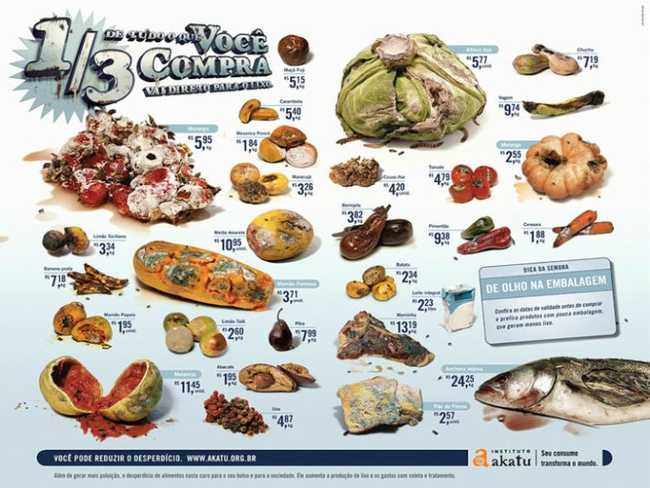What is conscious consumption?
Changing habits and pressing for a more sustainable society are the bases of conscious consumption

Fikri Rasyid image by Unsplash
The first step to understand what is conscious consumption is to realize that the consumption of anything and everything, whether a product or a service, brings positive and negative consequences. The act of consuming affects not only who makes the purchase, but also the environment, the economy and society as a whole. That is why it is so important to reflect on our consumption habits, to be aware of the real need for what we consume and the possible impacts that a purchase may cause.
Producing less waste, knowing the origin and manufacturing processes of the products we buy and knowing the impacts they cause throughout their lifetime, from raw material extraction to final disposal, are some of the attitudes that are part of consumption conscious . This attentive look at the externalities of consumption is also what allows the conscious consumer to demand changes from the government. Learn more about "What are positive and negative externalities?"
As the consumer is the final end of the production cycle, these are some of the attitudes that can be adopted to minimize the environmental impact of our consumption. In other words, conscious consumption, also called sustainable consumption, is nothing more than consuming better - it is a different consumption, affixed to the behavioral paradigm of immediate consumption, which seeks only quick satisfaction and profit (from the point of view of companies ), without considering the environmental consequences.
According to Instituto Akatu, which works to raise awareness and mobilize society on the topic, conscientious consumers know that they have great power in their hands when choosing a product and a production company, and can transform their purchase into an act of recognition of good sustainable practices. All of this starts with the prior analysis of the need: do I really need to buy?
If he decides yes, the consumer must define the characteristics he needs in the product, think about how he will buy, choose the manufacturer according to his socio-environmental responsibility in production, make an optimized use of the product so that it has a longer useful life and , finally, define a suitable way of disposal. Only then, making conscious decisions in each of these phases, the consumer will be able to compare and choose the best option.
In this way, it is possible to minimize the impacts of our consumption on the planet, as each item affects the entire ecosystem, as it consumes water, energy, oil and other raw materials for its production. Each new product purchased represents an additional expense of natural and human resources, in addition to the disposal of the item it is replacing. Conscious consumption is part of every society that values sustainable development and is an important step towards building a Circular Economy.
World consumption, in addition to being poorly distributed, is out of control: around 20% of the world's population consumes 80% of all products and services on the planet, according to the Akatu Institute. And each year, more than 150 million new consumers enter the market. This estimate shows that, in the next 20 years, we will have three billion people wasting food, taking longer than necessary to bathe, worshiping mall windows, waiting in lines at stores and buying online.

Image: Brochure for the campaign "1/3 of everything you buy will end up in the trash" by Instituto Akatu. Disclosure.
This model is not sustainable in the long term and has already shown its consequences, whether with regard to climate change or the issue of landfills that accumulate in countries like China, India and Bangladesh. Planned obsolescence and other commerce marketing strategies are the opposite of conscious consumption and we must be very careful not to fall into these traps.
In addition to playing its part as the final link in the production chain, it is very important for the conscientious consumer to cover government actions. Just acting more sustainably at the individual level is not enough to make the world change its logic of production and consumption; it is necessary to act as a whole, publicize the cause, demand laws that regulate production processes and the substances allowed in items of daily use. To demand, as a citizen, so that governments and companies put their strength in favor of people and not just in unbridled profit. Demand the encouragement of a new economy.
This is the theme of the video The story of change, from the series Story of Stuff, created by Annie Leonard. Check out:










